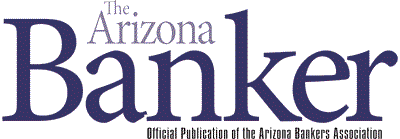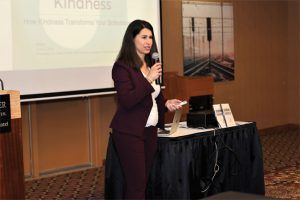Kindness is a soft skill. Since kindness can be hard to teach, measure or master, many people dismiss it as a nonessential nicety that won’t make or break your business. They value other capitalist-oriented skills more, such as ambition, grit and skill.
Consider a fictional example: Scrooge, the main character in A Christmas Carol by Charles Dickens; people recognize he is a miserable, lonely man, and no one would want to be like him or be around him. Yet Scrooge also fits the idea of the selfish and ruthless business owner who makes money because he is willing to take advantage of others. As the story begins, he thinks any generous act detracting from profit is foolish.
No business leader is likely to make similar claims in public, but when they consider the business ideas separate from the man, some might secretly think Scrooge’s ideas have some merit. But this is a big mistake. The soft skill of kindness is not just an important life skill; it’s also an important business skill. Being considerate, friendly, helpful and generous is a strength. It does not mean being a pushover or finishing last. Kindness means giving people the benefit of the doubt and remembering they may be dealing with difficult issues.
Kindness can strengthen business relationships within any culture, and many benefits involve employees. When the workplace culture is kind, communication is smoother and more effective, and employees are more likely to trust their leaders. Employees focus on their work and are less likely to compete negatively with other employees. Not only are relationships in and outside the company improved, but research also shows that employees with opportunities to be kind at work feel more loyal to their company.
Companies with a reputation for being kind find it easier to recruit and retain new employees. That’s a huge plus, as there are currently more open jobs than people to fill them, and qualified applicants have their choice of jobs. Who wouldn’t prefer working at a company where they can feel valued and respected?
Productivity also improves. Everybody makes mistakes, especially when trying out new business ideas. Employees can safely share information and be more innovative if the work culture kindly embraces learning from failure instead of punishing it.
Kindness is most challenging when it requires taking the high road and being kind in response to negative behavior. If you are trying to figure out why someone behaves badly, rather than treating them harshly, kindness is more likely to open someone up, giving them a chance to explain their side.
Customers respond positively to companies they believe are kind. When customers interact with a kind employee, a bond forms, resulting in increased customer engagement and brand loyalty.
Kindness is also helpful during difficult conversations. When speaking candidly to someone about a problem, kindly delivering what you must say is essential if you want the conversation to be a success. Choosing to be kind doesn’t mean avoiding any discussion of difficult things. Balance honesty with kindness. The goal is to be empathetic and curious instead of harsh.
All employees should be courteous to everyone, regardless of status. Smile often. Say thank you. Use a kind, pleasant tone when talking, be clear and positive when communicating, and accurately express your feelings and ideas. The cleaning crew deserves the same level of civility as the company owner. Managers might also encourage employees to help others when their tasks are complete and to be generous about sharing space and material resources when necessary.
Be a good, thoughtful and kind listener. Listening skills improve communication, reduce mistakes and encourage collaboration. Make time for others when they need it. If employees need substantial help, schedule a time to work with them.
Doing little things, like complimenting someone’s work and recognizing others when they do well, shows kindness. Recognize each person’s strengths and abilities. You can also communicate appreciation with food. If appropriate, a manager could bring breakfast or provide a snack tray during an important meeting. And team-building activities create a positive environment and show you want the workplace to be enjoyable.
Since some employees are gatekeepers, their opinions and influence may be larger than you think. Please treat them with respect. Start by introducing yourself and asking for their name if you can’t see their name on a tag or desk when you meet them. If they are busy, keep the conversation to a minimum. If they seem open to small talk, keep the conversation pleasant and neutral. Notice photos and awards. The next time you see them, kindly acknowledge them in a way that lets them know you remember your last conversation.
Don’t be overly familiar with people you’ve just met. Avoid terms that might be deemed insulting or condescending, such as “sweetie,” “babe,” “son,” or “dude.” When there is an opportunity to talk with anyone, engage in meaningful but not polarizing conversations, such as talking in a general way about weekend plans, previous work experiences and family.
Notice when someone is struggling with a door or carrying large packages, and offer your help. Also, help other people succeed. Recommend people, send them referrals, and be willing to provide expert advice if asked.
If appropriate, mentor new employees. Mentoring can involve introducing a new employee to others, training them in their job responsibilities and helping them feel comfortable.
Being kind at work — and everywhere else — matters because it contributes to creating and maintaining a more positive world. It makes sense from a business perspective, but it also makes sense from a human perspective. There are no regrets about being kind, which is something you can’t say about everything.










